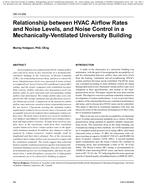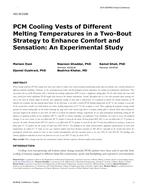Click here to purchase
Renewable energy has been continuously expanded to cope with climate change and increasing energy problems. It is highly required to equip with the energy storage systems to solve the imbalance on supply-demand and intermittent characteristics in power generation. Energy storage system using secondary-batteries has attracted significant attention as they can be applied in various energy applications. However, there are concerns about the risk of explosion by high operating temperature, which leads to performance degradation and reduces its lifetime. Therefore, the effective battery thermal management system should be prepared together with a battery module. In addition, more effective heat control system will be needed in the future as the energy density of lithium-ion batteries will increase from the current state of 100-200 Wh/kg (39-78 kcal/lb) to over 350 Wh/kg (137 kcal/lb). Therefore, this study has focused on the numerical investigation on designing a cooling heat exchanger to effectively dissipate the heat generated from the pouch-cell battery during the charging and discharging. Through modeling the battery thermal behavior, the CFD transient model to simulate the battery heat generation and its liquid cooling system has been developed and validated with the experimental data. The analytical and numerical analysis on both heat exchangers made of aluminum and polymer is conducted to analyze their cooling performance and figure out the possibility of the polymer heat exchanger as battery cooling heat exchanger. The straight flow channel polymer heat exchanger is designed and tested its cooling performance under the high current rate. The simulation results show the polymer heat exchanger could replace the existing aluminum heat exchanger as it could maintain the battery cell temperature at optimum range uniformly.
Citation: 2020 Winter Conference, Orlando, FL Conference Papers
Product Details
- Published:
- 2020
- Number of Pages:
- 8
- Units of Measure:
- Dual
- File Size:
- 1 file , 2.8 MB
- Product Code(s):
- D-OR-20-C023


